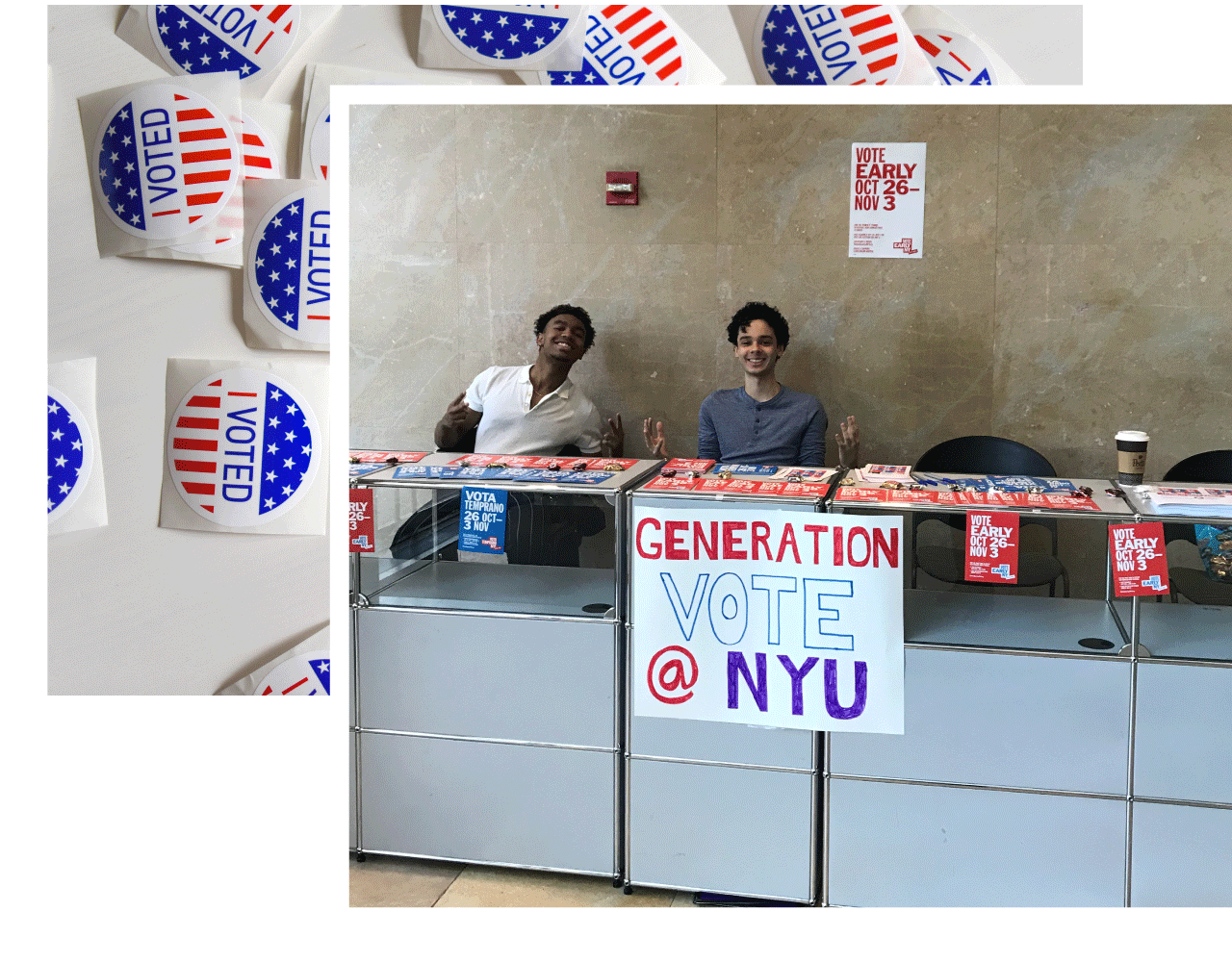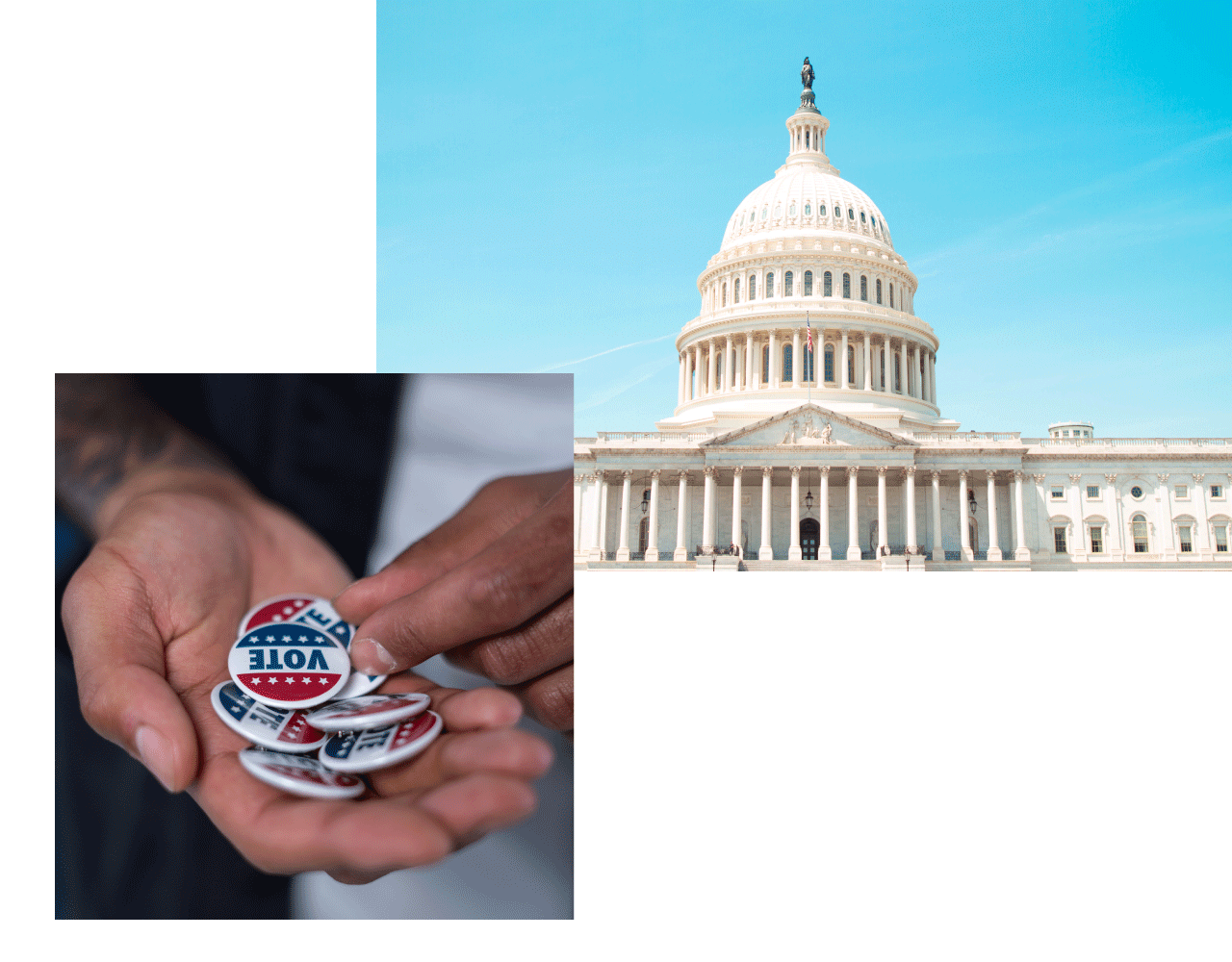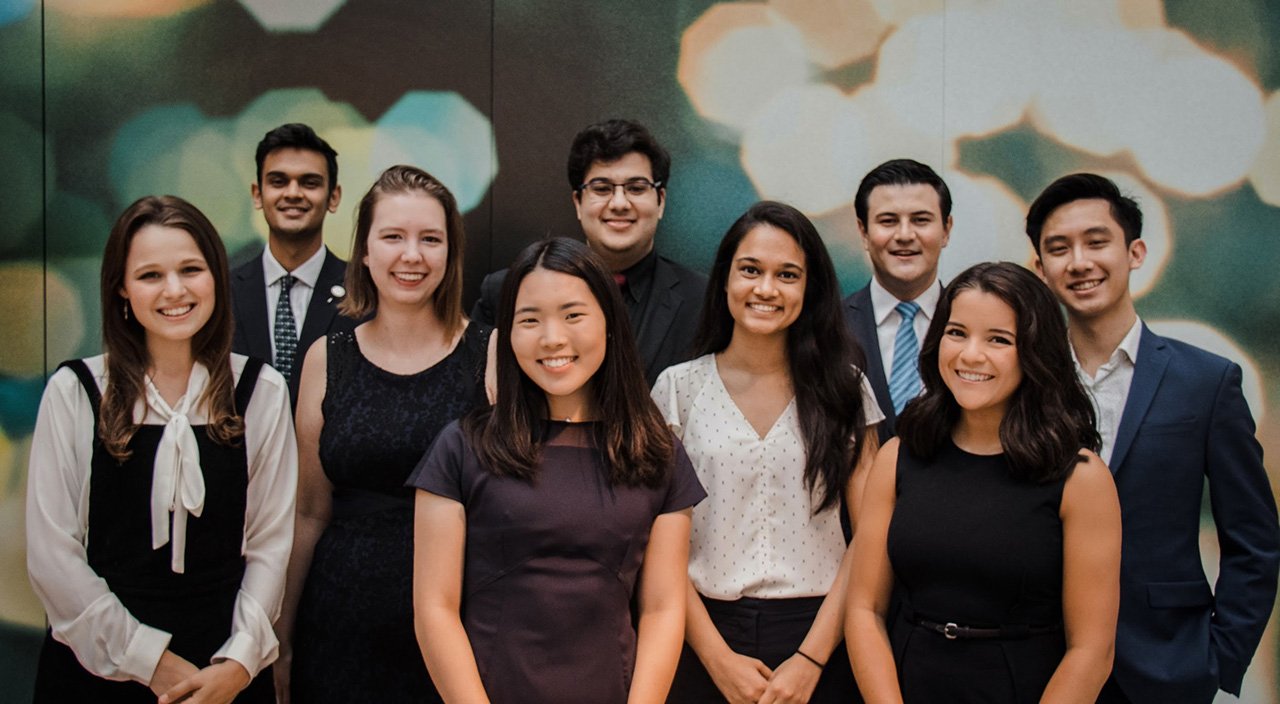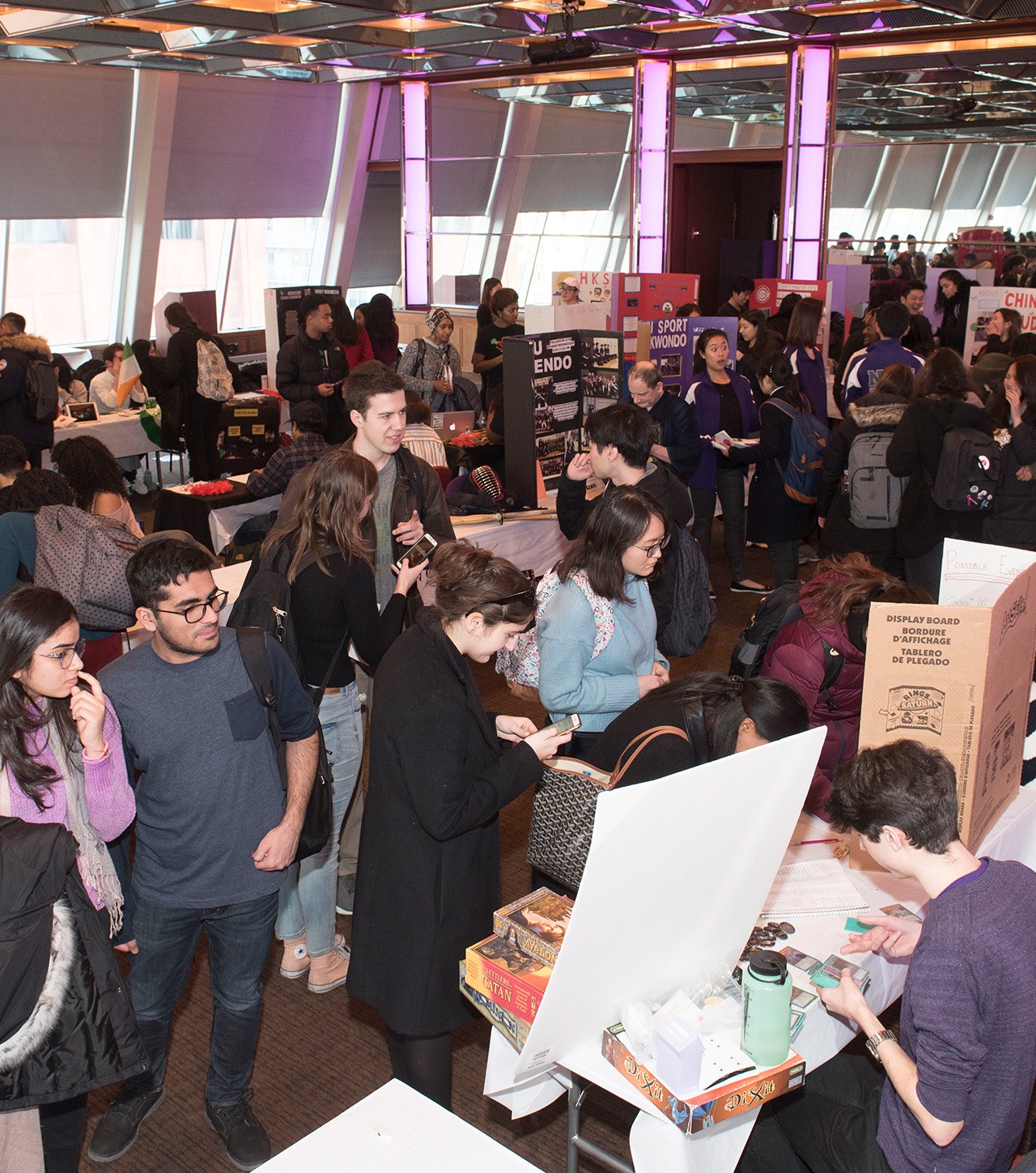Published October 05, 2020
Generation Vote: Students Lead the Push for Voting Rights

For many people, college years coincide with the first year they’re able to vote. But not everyone takes advantage of the opportunity—nationwide, only 48 percent of college students voted in the 2016 presidential election. The local chapter of Generation Vote is hoping to grow that number on NYU’s campus.
Generation Vote is a student-led group focusing on voter outreach and advocacy. “GenVote NYU was founded under the idea that we want to make civic engagement and voting rights a priority at NYU, in New York City, and statewide,” says Robi Lopez-Irizarry. He is a 2022 Politics and Public Policy major from Miami and founder of the group, which sees voting as foundational to addressing social-justice issues across the country.
Addressing the Unique Challenges of Voting in College
Low voter turnout among youth stems from many root causes. For example, students may be new voters unfamiliar with the process. What’s more, they are often living away from home, and are also less likely to be contacted by political campaigns. GenVote tackles these obstacles from multiple angles.
To begin, during Welcome Week the group targeted first-year students with education and outreach centered on voting. Next, they held major events on National Voter Registration Day, hosting virtual registration drives and recruiting volunteers for peer-to-peer texting. They are also organizing students to be roving poll watchers for Vote Early Day, which is just around the corner on October 24th.
Prioritizing and Expanding Voter Rights
Some people may be surprised by the idea that voter rights need to be defended in 2020, decades after the struggles of women’s suffrage and the Voting Rights Act. But GenVote sees the progress of previous generations not as an excuse for complacency but as a challenge to continue improving the state of voting.
Erica Burdin, a 2022 politics and history major from New Jersey and the group’s treasurer, says access is a major focus. “When it’s hard to access information or to take the time out of your day, it becomes really difficult to vote,” says Erica. “We try to increase the opportunity to actually allow people to take full advantage of their voting rights.”
To increase access, one of GenVote’s biggest initiatives is a campaign for an early-voting site on campus. “Not only is it fighting to lower the lines at a polling site, even at NYU,” Robi says. “It’s also trying to make sure online voter registration is a reality. And it’s trying to make automatic voter registration reality.”

Making Time to Vote
Despite being formed in spring of 2019, the group has already achieved a major goal. They succeeded in passing a resolution to make election day a University holiday, beginning in 2024. The university also promotes voting through NYU Votes, which provides information about the voting process and will text reminders for important registration and election deadlines.
An especially tough challenge this year will be reaching the many students attending remotely. GenVote is working to educate students about the voting rules in their various home states and organizing peer-to-peer texting drives. Additionally, a planned Instagram takeover will flood students’ accounts with registration information. “We’re trying to adapt to the changing reality of what organizing looks like,” Robi says.
Beyond November
The outreach efforts are not about promoting specific candidates—the group is strictly nonpartisan and partners with multiple campus political groups. “We’re not Democrat or Republican,” Erica says. “It doesn’t really matter who you vote for, as long as you turn out and you vote.”
Although the upcoming presidential election looms large, it’s not the group’s only focus. They’re also currently forming a committee with university administration to promote a holistic approach to voting engagement on campus. And after November, they want to draw more attention to elections at the local level.
“We try to improve each year, and that’s why we do this—to make sure that we can start saying, ‘Okay, this is where we started, and this is how we can get to a better place on the issue of voter turnout and accessibility,’” Robi says. “Our fight is going to continue.”



